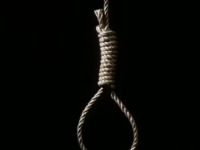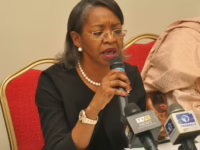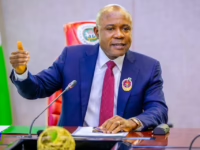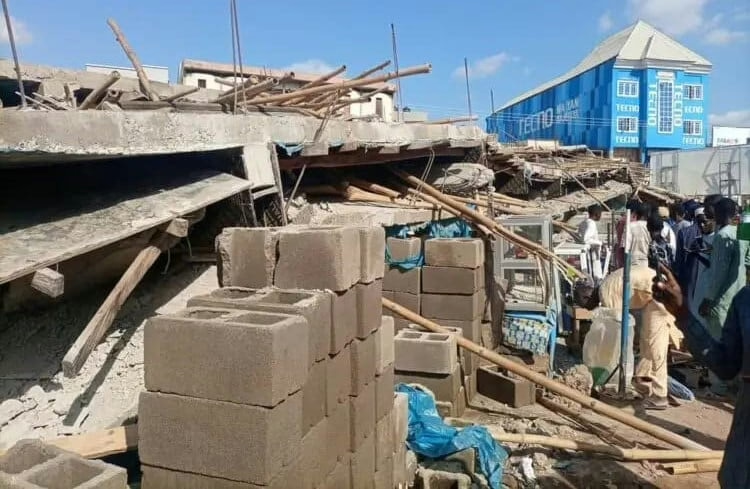Nigeria has recorded about 145 incidents of building collapse in the last four years, between 2022 and September 2025, with Lagos State recording half of those incidents, LEADERSHIP checks have shown.
A report by the Building Collapse Prevention Guild earlier disclosed that the country witnessed 135 building collapse incidents between 2022 and 2024. BCPG is a professional organisation in Nigeria that aims to prevent building collapses and promote safe and sustainable building practices nationwide.
However, LEADERSHIP findings revealed that nine building collapse incidents were reported in Lagos and one in Abuja in the current year (2025), bringing the total to 145 incidents.
In 2025, our correspondents gathered that, between January and June 2025, Lagos witnessed at least eight building collapse incidents , leaving 18 people dead. From Lekki to Ikorodu, Shomolu to Ojodu to Yaba, the incidents created a picture of weak enforcement, substandard materials, and disregard for safety standards. In September 2025, a three-storey building under construction collapsed on Friday night, September 12, 2025, at 333 Borno Street, Alagomeji, Yaba, Lagos State, making it the 9th building collapse in Lagos alone.
In August 2025, though, a three-storey building collapsed on Saturday evening in the Lifecamp area of Abuja, making it the 10th incident that we could capture as of the time of filling this report. However, the figure could be higher if we take into consideration some unreported or underreported cases that were not brought into the limelight.
Earlier, while giving a breakdown of building collapse incidents in Nigeria, BCPG had stated that the first building collapse in Nigeria occurred in October 1974 in Oyo State, resulting in 27 deaths. Since then, there have been numerous incidents, including the tallest building collapse in Lagos on November 1, 2021, which killed 52 people.
The guild stated that, in 2022, 62 building collapse cases were reported nationwide, with Lagos accounting for 20 incidents. The following year, 2023, saw 52 recorded collapse incidents, with Lagos leading again with 17 incidents.
Building collapse occurred on May 30, 2024, on Lagos Island, when a four-storey structure crumbled, entrapping an unknown number of individuals. As of 2024, there were 17 recorded building collapse cases, with Lagos having five, Anambra having three, and Kano, Niger, and Plateau having one each.
Hence, there are indications that more building collapse incidents loom across the country as poor enforcement of the National Building Code and weak oversight pose imminent danger for the construction sector of the nation’s economy, LEADERSHIP learnt.
Nigeria’s recurring building collapse crisis has become a national embarrassment, as it continues to claim lives, destroy property, and expose deep cracks in the country’s construction sector.
Despite the existence of regulatory bodies and laws, substandard materials, poor supervision, and corruption have combined to make structural failures a deadly routine.
Nigeria’s commercial capital, Lagos, accounts for more than half of the country’s recorded building collapse incidents , a grim reflection of weak compliance, careless contract handling, and inadequate enforcement.
The infamous 21-storey Ikoyi building collapse, which killed 46 people, including the developer, Femi Osibona, remains a haunting reminder of how costly negligence can be. In response to such tragedies, the Lagos State Government established the Lagos State Building Control Agency (LASBCA) to tighten supervision and curb illegal developments. Yet, the continuing collapse suggests that the system remains frail.
Structural failures have become frighteningly familiar across the country, from Lagos to Abuja, Port Harcourt to Kano. Analysts say these incidents expose a national crisis in building quality, fuelled by the widespread use of substandard materials and the poor enforcement of building codes.
“Most of the blocks sold in open markets are far below the required strength. Government agencies should inspect production yards and construction sites regularly. Still, enforcement is weak, and corruption allows poor-quality materials to flood the market,” said a structural consultant in Abuja, Engineer Musa Ibrahim.
For his part, the CEO of Grand Spaces Architects Limited, Architect Simeon Kemakolam, described the issue as systemic, blaming poor worker technical certification and inadequate implementation of the National Building Code.
“Even some of the building materials produced locally are substandard. What used to be sold as 12mm iron rod is now branded as 16mm. Builders trust engineers’ specifications, but it’s the government’s duty to ensure those standards are genuine,” he said. Kemakolam also called for investment in technical education to improve workmanship and reduce reliance on uncertified labour, saying it would boost construction quality and employment.
Moreover, the Standards Organisation of Nigeria (SON) occasionally shuts down illegal block-making factories, but experts argue that such interventions are inconsistent and short-lived. ‘Our regulators are reactive rather than proactive. They only appear after buildings have collapsed and lives have been lost, a Lagos-based practitioner, Bisi Onafowokan, lamented.
Data from the BCPG indicates that Nigeria records dozens of collapse annually, with Lagos accounting for the majority. Stakeholders said this trend underscores the need for consistent monitoring, transparency, and accountability in the sector.
Industry stakeholders and civil society groups have repeatedly called for a total overhaul of Nigeria’s construction monitoring system. Their recommendations include: tighter monitoring of material production, mandatory certification of contractors, and the blacklisting of developers who cut corners.
According to the Centre for Public Accountability, the key obstacle is political will. ‘Regulators know what to do. What’s missing is the courage to confront developers and networks that profit from substandard practices,’ the group stated.
Similarly, the director-general of SON, Dr Ifeanyi Chukwunonso, emphasised the need for robust material testing and enforcement, adding that, ‘all construction materials must be verified to meet standards before use. There will be consequences for any developer who bypasses these standards.’
He said that under the SON Act No. 14 of 2015, the agency monitors goods through the Mandatory Conformity Assessment Programme (MANCAP) for local products and the SON Conformity Assessment Programme (SONCAP) for imports. SON has also introduced a Product Authentication Mark (PAM) to help consumers verify product authenticity. Okeke revealed that, a task force has been set up to standardise steel reinforcement bars nationwide and sanction violators. The agency, he said, continues to collaborate with COREN, NBRRI, and the Ministry of Works to enforce compliance.
The general manager, Lagos State Building Control Agency (LASBCA), Gbolahan Oki said, the agency is now enforcing stage-by-stage inspections for all building projects to ensure adherence to approved permits.
He identified poor reinforcements, disregard for design specifications, and weak supervision as the leading causes of collapse. He said we are sealing and demolishing illegal structures and prosecuting offenders at the Building Tribunal.
Moreover, the Lagos State Environmental Protection Agency (LASEPA) general manager, Dr Babatunde Ajayi, stressed that unsafe construction practices also threaten environmental health. He urged manufacturers and developers to adopt sustainable building methods, warning that non-compliance undermines public safety and the economy.
Experts agree that Nigeria’s building collapse epidemic is not a mystery but the predictable result of weak oversight, corruption, and complacency. Unless regulators enforce laws without fear or favour, and developers adhere to ethical standards, they said, more preventable disasters are inevitable.
As one analyst said, “The problem isn’t ignorance, it is indifference. And indifference kills.”






















